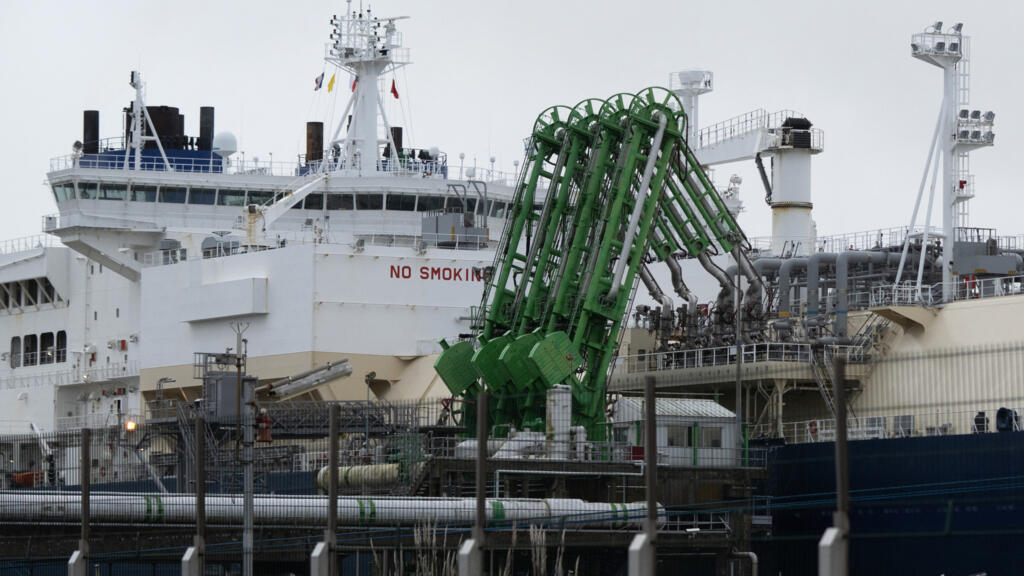Business
EU to End Russian Gas Imports by 2027, Defying Diplomatic Pressure

The European Union has committed to eliminating all imports of Russian gas by the end of 2027. This decision, reached by the bloc’s energy ministers on Monday, marks a significant step in the EU’s strategy to reduce dependency on Russian energy sources amid ongoing geopolitical tensions.
Despite this unified front, the agreement faced opposition from Hungary and Slovakia, two member states that maintain closer diplomatic ties with Russia and continue to receive gas via pipeline. The dissenting voices highlight the complexities within the EU, where varying national interests can complicate collective decision-making.
Strategic Shift in Energy Policy
The move to phase out Russian gas imports is part of a broader initiative to enhance energy security across Europe. The decision aligns with previous EU efforts to diversify energy sources and reduce reliance on external suppliers, particularly in light of Russia’s actions in Ukraine and the subsequent sanctions imposed by Western nations.
EU officials emphasized the importance of this transition, stating that it would bolster resilience against energy supply disruptions. The bloc aims to replace Russian gas with alternative sources, including increased imports of liquefied natural gas (LNG) from suppliers such as the United States and Qatar.
Hungary and Slovakia’s opposition raises questions about the feasibility of the EU’s energy strategy. Both countries rely heavily on Russian gas for their energy needs, and the transition may pose economic challenges.
Impact on Energy Markets
The announcement has already begun to influence energy markets across Europe. Analysts predict fluctuations in gas prices as countries adjust to the new landscape. The EU’s commitment to phase out Russian imports also comes at a time when energy demand is projected to rise, particularly during the colder months.
Broader Implications
Moving away from Russian gas not only impacts energy supply but also has broader geopolitical implications. The EU’s decision signifies a shift towards greater energy independence and a potential reconfiguration of energy alliances on the global stage.
The bloc’s strategy reflects a growing consensus among member states that prioritizing energy security is essential to maintaining stability and sovereignty in the face of external pressures.
As the EU navigates this transition, the focus will remain on ensuring that all member states can secure reliable energy supplies. The timeline set for the phase-out of Russian gas imports emphasizes the urgency of this shift, particularly as the region grapples with the challenges posed by climate change and the need for sustainable energy solutions.
In conclusion, the European Union’s decision to phase out Russian gas by 2027 marks a pivotal moment in its energy policy. While challenges remain, particularly for member states like Hungary and Slovakia, the commitment to energy diversification represents a significant step toward a more resilient and secure energy future for Europe.
-

 Top Stories2 months ago
Top Stories2 months agoTributes Surge for 9-Year-Old Leon Briody After Cancer Battle
-

 Entertainment3 months ago
Entertainment3 months agoAimee Osbourne Joins Family for Emotional Tribute to Ozzy
-

 Politics3 months ago
Politics3 months agoDanny Healy-Rae Considers Complaint After Altercation with Garda
-

 Top Stories3 months ago
Top Stories3 months agoIreland Enjoys Summer Heat as Hurricane Erin Approaches Atlantic
-

 World4 months ago
World4 months agoHawaii Commemorates 80 Years Since Hiroshima Bombing with Ceremony
-

 Top Stories4 months ago
Top Stories4 months agoFianna Fáil TDs Urgently Consider Maire Geoghegan-Quinn for Presidency
-

 Top Stories2 months ago
Top Stories2 months agoNewcastle West Woman Patricia Foley Found Safe After Urgent Search
-

 World4 months ago
World4 months agoGaza Aid Distribution Tragedy: 20 Killed Amid Ongoing Violence
-

 World4 months ago
World4 months agoCouple Convicted of Murdering Two-Year-Old Grandson in Wales
-

 World4 months ago
World4 months agoAristocrat Constance Marten and Partner Convicted of Infant Murder
-

 Top Stories3 months ago
Top Stories3 months agoClimbing Errigal: A Must-Do Summer Adventure in Donegal
-

 Top Stories3 months ago
Top Stories3 months agoHike Donegal’s Errigal Mountain NOW for Unforgettable Summer Views









